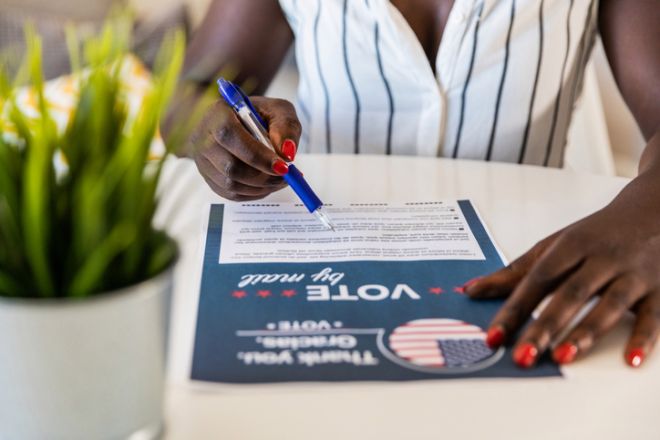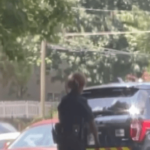
Source: LeoPatrizi / Getty
It’s still up for debate whether or not the 19th Amendment will be invoked in Florida, so voting rights are extending to Black women ex-felons who can’t afford the restitution they need to pay — a requirement under the state’s 2018 Amendment 4. Ultimately, the decision will be made by the U.S. Court of Appeals for the 11th Circuit.
The 19th Amendment was passed in 1919, ratified in 1920, and “granted women the right to vote” in the United States, as per History.com.
RELATED CONTENT: “Should Voting Rights Be Restored To Ex-Felons?”
Local news source the Florida Phoenix reported on July 25, that the fate of the ongoing case will be determined by whether the court can see a “specific intent by the Florida Legislature to discriminate against Black women ex-felons,” or if it decides that “that the law implementing Amendment 4 discriminates in effect against the women.”
Legal representatives from the Southern Poverty Law Center argue that Black women ex-felons in particular deal with immense financial roadblocks after being released from prison when it comes to honoring their “legal financial obligations.” Pointedly, restitution is one of those obligations.
In court, Nancy Abudu from the SPLC asserted that Florida’s Amendment 4 fails the public when it comes to both of the aforementioned arguments.
“We do not have to establish that Gov. DeSantis is a misogynist or that he is a racist,” Abudu said in the courtroom. “All we have to establish is that the law that the state of Florida enacted will have a disparate impact or pose … an undue burden on our clients.”
The United States Court of Appeals for the 11th Judicial Circuit presides over federal cases in Alabama, Florida, and Georgia. As per the Florida Phoenix, this case marks the third time that Amendment 4 “has come before the appeals court.”
Giving more context for the case — which will be decided by a three-judge panel — it “involves Rosemary McCoy and Sheila Singleton, two Black women with felony records who have been denied the right to vote and claim their criminal records prevent them from getting jobs that would pay enough for them to satisfy thousands of dollars in restitution orders.”
RELATED CONTENT: “Texas Courts To Review Appeal Of Woman Sentenced To 5 Years In Prison For Voting”
In court, Abudu went onto argue several points on McCoy and Singleton’s behalves. She argued her points with statements including:
“This is not a temporary barrier to accessing the ballot box. Because of the significant amount of money that they owe in legal financial obligations, it actually results in them never, ever, being able to vote again,”
and “We are bringing a claim that is an intersectionality argument.”
Moreover, the Florida Phoenix shared that Abudu outlined that 25% of Black women in the state of Florida “live below the poverty line, and those with criminal convictions suffer an unemployment rate of 43 percent.”
“They are not less likely, but actually the least likely of those within the class of people with criminal convictions to be able to satisfy fully their legal financial obligations in order to vote in Florida,” Abudu said in court.
As of now, the ruling on the case — which will be decided by Senior Judge Gerald Bard Tjoflat and judges Jill Pryor and Adalberto Jordan — seems like it might go either way.
As per the outlet, Judge Jordan expressed “that most access-to-voting precedents within the circuit don’t require proof of intent to deny equal access.”
Regarding the state’s defense, Mohammed Jazil argued that making exceptions to Amendment 4 in order to be more accommodating of gender and wealth “turns equal-protection concepts on their head.”
After the arguments were presented, Abudu said in an interview that she felt as though the court was “very understanding” and added that “Overall, we’re optimistic.”


